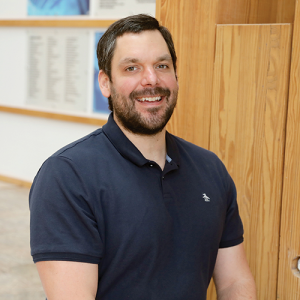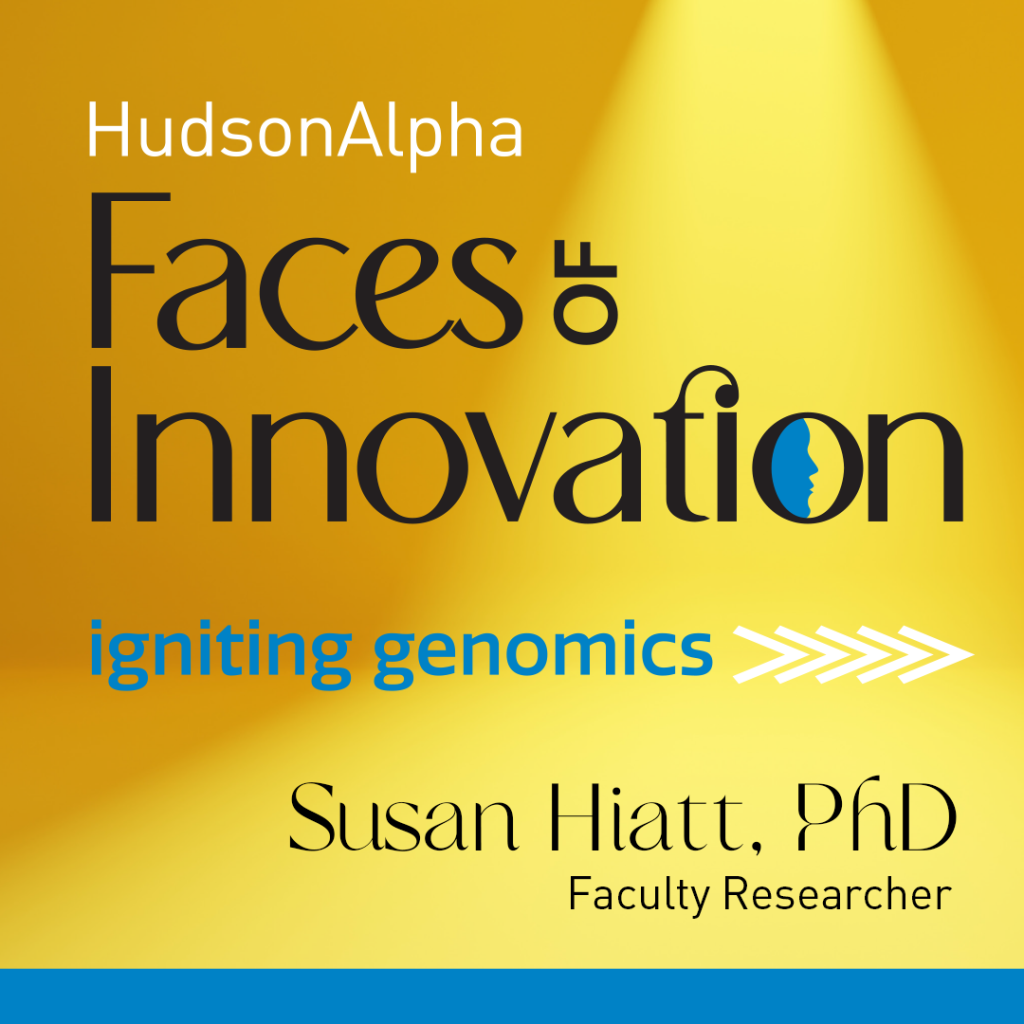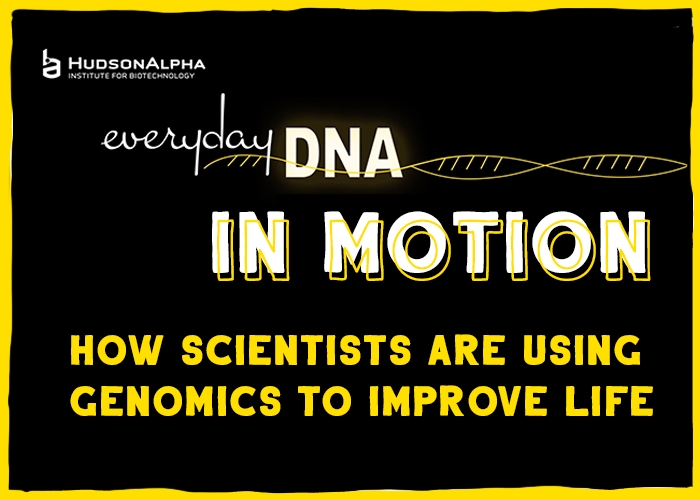Mars and nonprofit collaborate to drive agriculture innovation including stronger, more sustainable crops that use less water and fewer pesticides
Huntsville, AL—March 15, 2022—HudsonAlpha Institute for Biotechnology—a nonprofit institute dedicated to developing and applying scientific advances to health, agriculture, learning and commercialization—today announced it has entered a new collaboration with Mars Wrigley, a segment within Mars, and maker of some of the world’s most beloved treats and snacks. With the support of Mars, HudsonAlpha Faculty Investigator Josh Clevenger, PhD, will work to create more sustainable crops that use less water and fewer pesticides, promoting regenerative agriculture and safer, more durable harvesting solutions.
Working to Boost Sustainable Agriculture by Addressing Crop Challenges
In the new collaborative project, Clevenger and the team at Mars aim to tackle two related crop issues: aflatoxins and drought tolerance. Aflatoxins are a group of toxins produced by the fungi Aspergillus, found in soil. Aflatoxins can contaminate agricultural crops such as peanuts, tree nuts, corn maize, and grains such as wheat.
Grown on millions of acres of land throughout tropical and subtropical regions worldwide, peanuts attract heavy demand internationally, serving as an important protein source in many diets. A successful peanut plant harvest can be threatened by many factors including environmental conditions, pests, fungi, and diseases.
Creating peanuts that are less susceptible to aflatoxin could benefit both the economy and human health. Many countries have regulations governing aflatoxin levels in crops. Harvested crops having aflatoxins over the allowable limit are often destroyed, which could cause substantial losses in profit for peanut farmers and contribute to the global issue of food waste and climate change through increases in methane gas.
Successful lines that are drought tolerant and aflatoxin resistant and carry other beneficial traits such as high yield may be deployed for commercial use. These new lines would be released publicly and deposited in the USDA germplasm collection for dispersal which freely distributes seed requests to any country in the world. In addition to the research with HudsonAlpha, Mars is taking a multi-systems approach to managing aflatoxins within the global food supply chain, including through research at the Mars Global Food Safety Center and with leading partners around the world.
“Mars is partnering with the HudsonAlpha Institute for Biotechnology in support of the world we want tomorrow, which is a world with a healthy planet and thriving people. We at Mars want to share groundbreaking solutions for crops that use less water and pesticides, eradicating aflatoxin more quickly and efficiently, and in a way that mutually benefits everyone involved,” said Victor Nwosu, Senior Fellow, Mars Wrigley.
Solving Challenges Through Collaboration
Aspergillus fungi produce aflatoxins when conditions are hot and dry – which is a pressing threat in view of climate change challenges. Like many global crops, peanuts are grown using dry land production, meaning the farmers do not irrigate the peanuts during their growth cycle. During times of drought, peanuts become stressed leading to exacerbated aflatoxin production. Increasing drought tolerance in peanuts could mitigate aflatoxin production and contamination.
Quantitative traits, such as drought tolerance and disease resistance, are controlled by small regions of DNA called quantitative trait loci (QTL). Larger DNA segments that are close to the QTL can be used as markers to determine if a plant inherited the desired trait. Clevenger and his team are using genomics, as well as new computational tools and breeding methods, to identify QTLs that confer drought tolerance and rapidly introduce them into agronomically valuable elite peanut lines using a technique known as marker-assisted speed breeding.
“Teamwork and collaboration are two of the pillars upon which HudsonAlpha Institute for Biotechnology were founded and they are still integral to our success,” said Clevenger. “We are looking forward to partnering with Mars to help solve two major peanut challenges at once, which could have a substantial impact on food security and help protect the livelihoods of the food producers we rely on.”
HudsonAlpha has 1,600-square-feet of indoor grow rooms suitable for yearlong production. Two rooms are focused specifically on peanut molecular breeding. Using accelerated growth conditions and continuous light, at least three and up to four generations of peanuts can be accomplished in one year, greatly speeding up the process of backcross mediated trait integration.
The new lines will be field tested under drought conditions in Tifton, Georgia in collaboration with Peggy Ozias-Akins, PhD at the University of Georgia and Corley Holbrook, PhD, U.S. Department of Agriculture Supervisory Research Geneticist.
For more information about HudsonAlpha Institute for Biotechnology, please visit https://www.hudsonalpha.org/
For more information about Mars, please visit www.mars.com.
ABOUT HUDSONALPHA
HudsonAlpha Institute for Biotechnology is a nonprofit institute dedicated to developing and applying scientific advances to health, agriculture, learning, and commercialization. The HudsonAlpha biotechnology campus consists of 152 acres nestled within Cummings Research Park, the nation’s second-largest research park. The state-of-the-art facilities co-locate nonprofit scientific researchers with entrepreneurs and educators. HudsonAlpha is a national and international leader in genetics and genomics research and biotech education and fosters more than 45 diverse biotech companies on campus. To learn more about HudsonAlpha, visit hudsonalpha.org.
ABOUT MARS, INCORPORATED
For more than a century, Mars, Incorporated, has been driven by the belief that the world we want tomorrow starts with how we do business today. This idea is at the center of who we have always been as a global, family-owned business. Today, Mars is transforming, innovating and evolving in ways that affirm our commitment to making a positive impact on the world around us.
Across our diverse and expanding portfolio of confectionery, food, and pet care products and services, we employ 133,000 dedicated Associates who are all moving in the same direction: forward. With $40 billion in annual sales, we produce some of the world’s best-loved brands, including DOVE®, EXTRA®, M&M’s®, MILKY WAY®, SNICKERS®, TWIX®, ORBIT®, PEDIGREE®, ROYAL CANIN®, SKITTLES®, BEN’S ORIGINAL™, WHISKAS®, COCOAVIA®, and 5™; and take care of half of the world’s pets through our nutrition, health and services businesses, including AniCura, Banfield Pet Hospitals™, BluePearl®, Linnaeus, and VCA™.
We know we can only be truly successful if our partners and the communities in which we operate prosper as well. The Mars Five Principles – Quality, Responsibility, Mutuality, Efficiency and Freedom – inspire our Associates to take action every day to help create a world tomorrow in which the planet, its people and pets can thrive.
For more information about Mars, please visit www.mars.com. Join us on Facebook, Twitter, Instagram, LinkedIn and YouTube.



